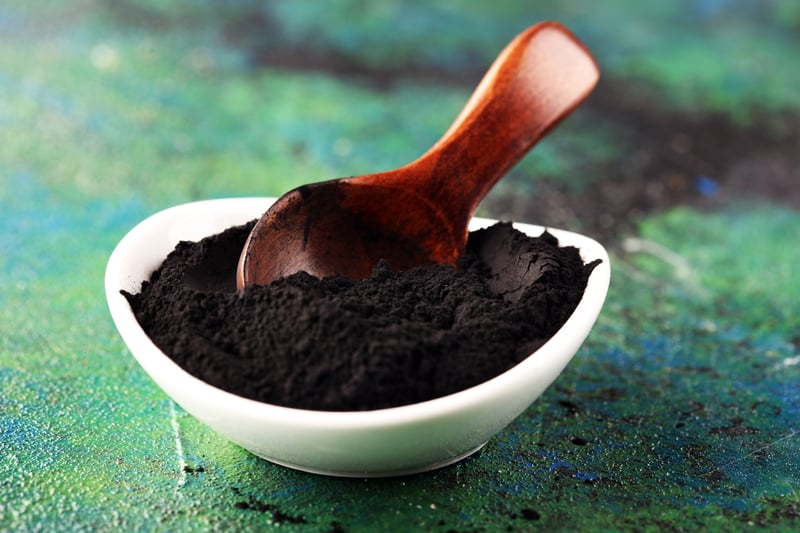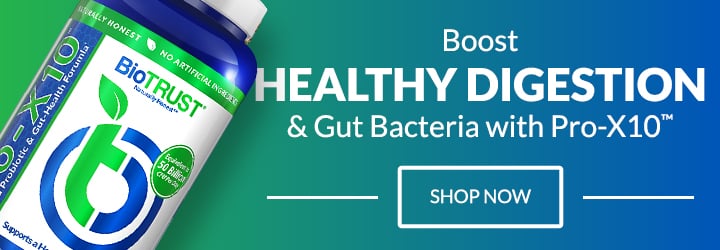Is Activated Charcoal Good for You? See the Science

If you haven’t noticed, a surprising ingredient has found its way onto cosmetic, beauty, and healthcare shelves. It’s become a key addition to toothpastes and mouthwashes, soaps, antiperspirants and deodorants, skincare cleansers and masks, shampoos, detox products, and more. What is that ingredient? It’s activated charcoal. That brings up several questions: What is it? Is activated charcoal good for you? What are its benefits and drawbacks? And should you try it?
Let’s dig into the research on activated charcoal to see if it really is a miracle ingredient.
In today’s article about activated charcoal, we cover the following:
- What is Activated Charcoal?
- The History of Activated Charcoal
- Other Uses of Activated Charcoal
- Benefits and Drawbacks of Activated Charcoal
- Is Activated Charcoal Good for You?
What is Activated Charcoal?
When natural sources of carbon (e.g., wood, coconut shells, peat, sawdust, bone char, etc.) are heated slowly to superhigh temperatures, they create a black, odorless powder, not to be confused with charcoal bricks used during your next BBQ. The powder is then activated via an oxidation process that creates even more holes and crevices, making the particles very porous and absorbent.
This process increases the surface area, allowing activated charcoal to better bind to dissolved particles, including molecules, ions, or atoms. In fact, just a small teaspoon of activated charcoal can have more surface area than a football field. 1
In addition, the porous texture has a negative electrical charge. This means it may attract positively charged molecules, which may include gases, toxins, and other chemicals. 2
RELATED: Collagen Doesn’t Work (Unless…)
The History of Activated Charcoal
Many emergency rooms have long been familiar with the fine, odorless black powder that is activated charcoal. It’s been used for more than a century (since the early 1800s) to help treat overdose or the ingestion of various poisons. 3
If a patient has overdosed or is poisoned, and is still awake and alert, they’re less likely to have their stomachs pumped and more likely to be given the black powder mixed in water or a sweetened beverage to then prevent it from being absorbed. 1
If need be, the patient may also be given activated charcoal mixtures through feeding tubes. This is because activated charcoal can be more effective than pumping the stomach. 4
Activated charcoal can be used in hospital settings to help clear toxins like NSAIDs (e.g., aspirin and acetaminophen), some sedatives, some mild stimulants, and other medications. But it isn’t effective for all types of drugs or toxins. For example, it can’t help with alcohols, cyanide, lye, iron, lithium, petroleum products, and many others.
When a single dose of 50 to 100 grams is taken within 5 minutes of ingesting the toxin, it can reduce absorption by as much as 74%. 5
That effect, however, can drop to 50% after 30 minutes, and 20% after 3 hours. 6 So, the sooner the patient is given the activated charcoal, the better it works.
That does not, however, mean it should be given at home, as overdosing or consuming a poison is very serious, and needs to be monitored and supported through other methods (such as IV fluids). In addition, over-the-counter products may not be as “activated” or as effective as what’s used in the emergency room. And the OTC dosages may be far smaller than what’s required. Finally, ingestion of activated charcoal is not without risks, the most common being aspiration or bowel obstruction. 7
Another historical use for activated charcoal is to clean and filter water. Just as in the stomach and intestines, activated charcoal may absorb a variety of toxins, chemicals, and impurities. It’s used in commercial settings, waste-management systems, and home-use water filtration systems. These water filters remove most contaminants, including pesticides, chlorine, heavy metals, and even fluoride.
Activated charcoal can also be used to neutralize smells in the air. You can add air filters around the garbage can, fridge, bathroom, or when using smelly chemicals like paint or polish.
Finally, activated charcoal is a part of some respiratory masks, again to help filter toxins from the air. It’s been shown to be effective against radon, fuels, solvents, and many industrial chemicals.
Other Uses of Activated Charcoal
More recently, activated charcoal has been added to many products due to its ability to bind to toxins. Because the body cannot absorb the charcoal, the toxins are then theoretically shuttled out of the body where they can no longer do damage. That said, medical authorities only approve activated charcoal for overdoses or poisonings.
What’s more, despite the hundreds of activated charcoal products hitting the shelves, very few studies—and no large-scale conclusive studies—have shown significant benefits. Instead, manufacturers use the chemical principles of the compound for product claims.
There are some small studies (often done with animals) that indicate activated charcoal may help:
- Assist kidney function by filtering out toxins 8
- Neutralize intestinal gas and reduce bloating when taking at least one gram of activated charcoal before each meal 9
- Mitigate diarrhea (with few side effects)—it may be especially helpful for travelers who happen to get food poisoning 10
- Positively affect wound healing 11
- Decrease unpleasant fish odor from people suffering from the disorder trimethylaminuria (TMAU) 12
- Bind to cholesterol, potentially leading to lower cholesterol levels, especially LDL cholesterol 13
- Mitigate the overgrowth of mold 14
There’s even less compelling research suggesting activated charcoal may be used to:
- Support oral health and whiten teeth 15
- Pull impurities like dirt, chemicals, and toxins off the surface of the skin to minimize pores and zap zits
- Absorb smells and excess moisture to help deodorize
- Absorb microbes to help with skin infections
- Decrease alcohol concentration to potentially help prevent hangovers—it doesn’t actually bind well to alcohol, so this effect is highly dubious 16
Numerous products contain activated charcoal to help soak up excess oils and remove impurities. Unfortunately, little to no clinical research exists to support claims that it can exfoliate the skin or help it look any younger. 17 That isn’t to say that you may not love your activated charcoal deodorant, soap, skincare product. There just isn’t enough research to conclude that it’s any more effective than any other products available.
There’s also little evidence that activated charcoal products are antiviral, antibacterial, or antifungal. So, depending on the rest of the ingredients in each product, you may say hello to beautiful skin… or not.
There is one other way that activated charcoal has been found to be effective: in underwear. Yes, you can find underwear made with activated carbon fiber, and it has been shown in research to reduce the smell of flatulence. 18 Some researchers have even suggested airlines include activated charcoal in seats “for the comfort of all passengers.” 19
Benefits and Drawbacks of Activated Charcoal
For the most part, activated charcoal is considered safe. Adverse reactions such as nausea and vomiting are rare. The most common side effects of taking activated charcoal by mouth are constipation, black stools, and dehydration. 20 If consuming activated charcoal, ensure you are also drinking plenty of water—at least 12 to 16 glasses per day.
Because activated charcoal can reduce the absorption of some medications, anyone using prescription drugs should first consult with their healthcare practitioner before taking it. 5
Care should also be used to ensure the powder doesn’t travel to the lungs (i.e., if a patient is drowsy or only semi-conscious). Avoid inhaling activated charcoal as it is very harmful to the lungs. It should also be avoided by individuals with variegate porphyria, as well as those who have experienced intestinal bleeding or blockages, holes in the intestines, slow digestion, or recent abdominal surgery.
While many “detox” products contain activated charcoal, there’s no research that shows it’s effective. In fact, if it’s not needed, it may even eliminate the healthy vitamins and nutrients your body needs or other supplements you have paid good money for.
It is also not recommended to be included in toothpaste as the compound is abrasive and potentially damaging to tooth enamel. 15 This can lead to sensitive, yellowed teeth that are more prone to cavities. On top of that, research on various teeth-whitening products found no significant effects from activated charcoal. 21
Finally, be sure to keep any activated charcoal in a tightly sealed container as it can absorb impurities from the air. Those impurities could then transfer to your skin or body, depending on how the product is used.
Is Activated Charcoal Good for You?
There are many areas where the research simply isn’t there, such as for deodorant or skin health. Other areas may do more harm than good, such as detox products. Others, however, have been shown to be highly effective, such as for filtering water and air or for medical professionals treating overdose or poisoning. Again, however, if you have been poisoned or are seriously ill, please seek immediate medical attention rather than taking some activated charcoal at home.
Is activated charcoal good for you? As with so many aspects of health, the answer is, “it depends.”







